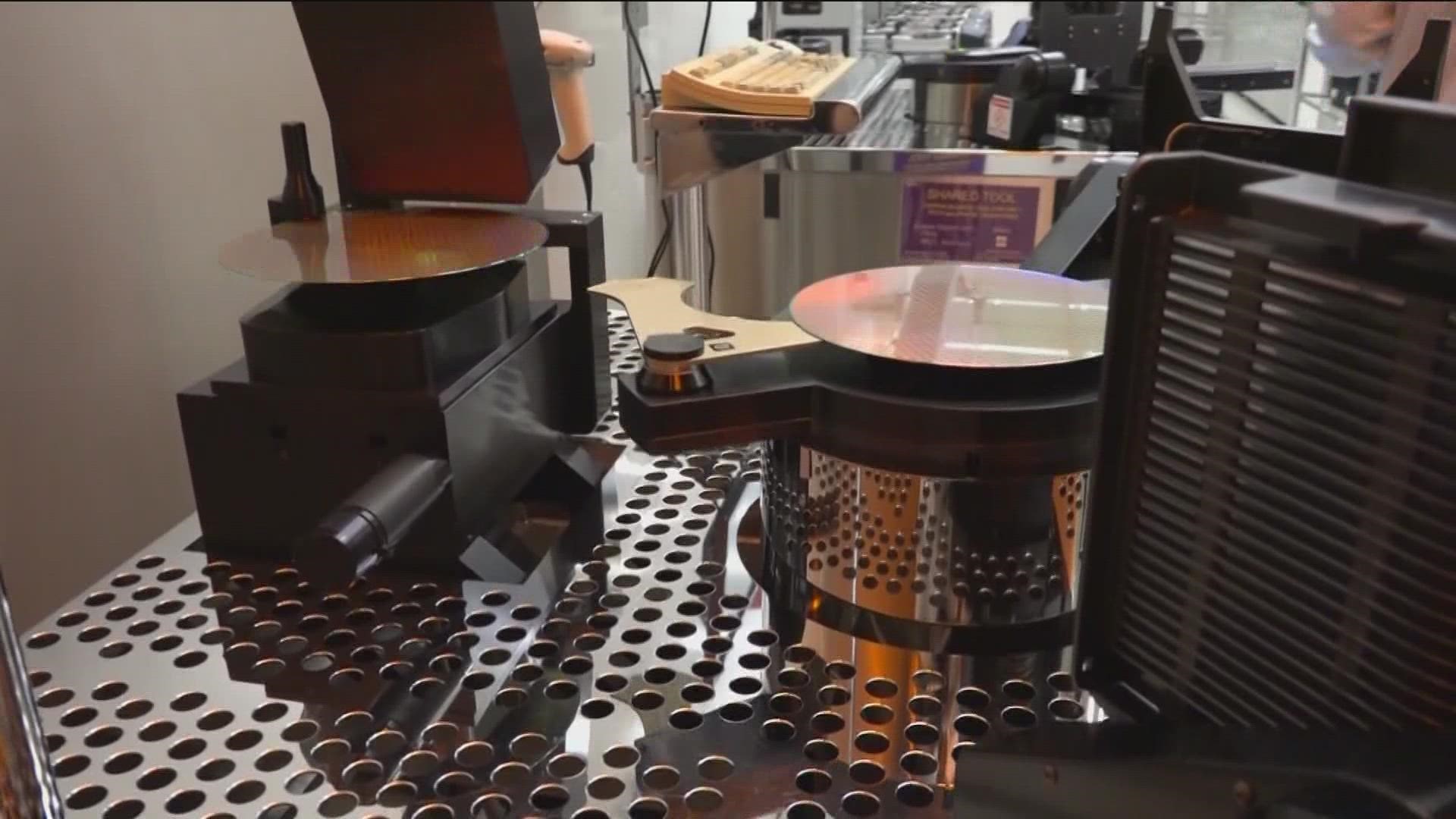AUSTIN, Texas — The CHIPS and Science Act passed by Congress last week aims to bring semiconductor manufacturing and research back to the U.S.
Since the 1990s, the U.S. has fallen behind in chip production while leading the technology's innovation. In that time, China and Taiwan heavily invested in the industry and now lead the global production of chips.
"We are in fierce competition with China, and the Chinese are and have been steadily investing in themselves for decades," U.S. Trade Representative Katherine Tai said Friday. "I think that, you know, this is an investment that we need to do for us."
The $52 billion investment is the first of its kind from the federal government and experts hope it won't be the last.
"Innovation feeds manufacturing five, 10 years down the road," Dr. Sanjay Banerjee, a researcher at the University of Texas who started his career in the semiconductor industry, said. "That's where universities come in. Unless we do the leading-edge research and produce the Ph.D.s who work at these companies, you kill the innovation pipeline, if you will."
Tai added that the supply chain disruptions over the past two years exposed just how desperate the U.S. is to create its own chips rather than rely on ones made elsewhere in the world. China opposed the CHIPS legislation from the beginning as many semiconductors in American products come from the Chinese.
"It's to make sure that we are resilient and we don't experience these disruptions in the same way in the future," Tai said. "We've learned our lesson from what's been a really tough couple of years. ... You've got to have a critical level of manufacturing activity going on to make sure that when crises come up, you can pivot, you can scale up. And, also, in terms of your trade flows, that we've just got more options than we do right now. So, in terms of the relationship with our other countries, you know, there are partnerships that we need to form."
The U.S used to manufacture nearly 40% of the world's chips. Now, the U.S. only makes about 12% while China and Taiwan make nearly 90%. Tai acknowledged the CHIPS and Science bill will keep the nation competitive, but this is not the time to wait.
"We can't rest on our laurels," Tai said. "When it comes to international economic competition, it's fierce out there. There are a lot of smart people in the world. We've got a run for our money. ... We've got to do more of this. We've got to be smart about it. We've got to do it in a way that's true to our principles of democracy and open markets."
Companies and universities can start applying for CHIPS funding later this year.
Watch the full interview with Ambassador Tai here:
PEOPLE ARE ALSO READING:

